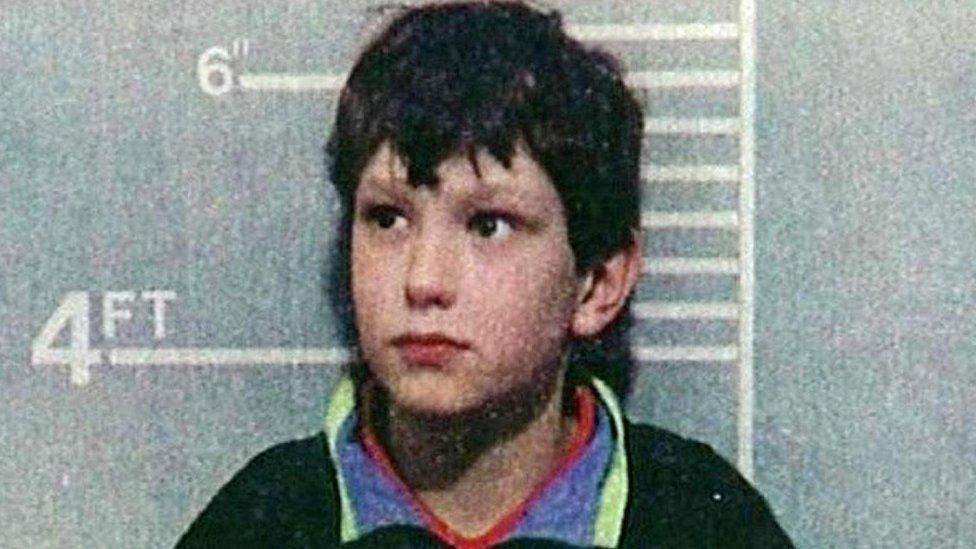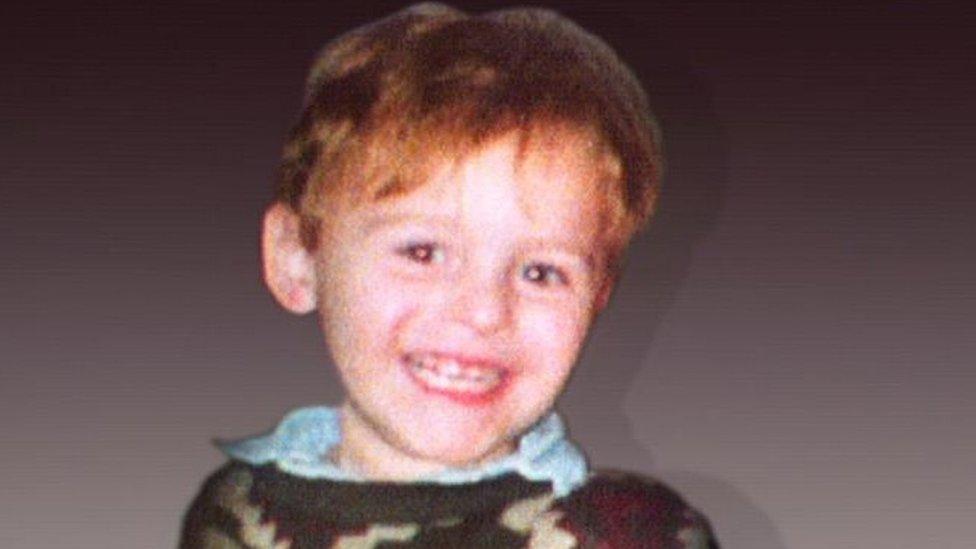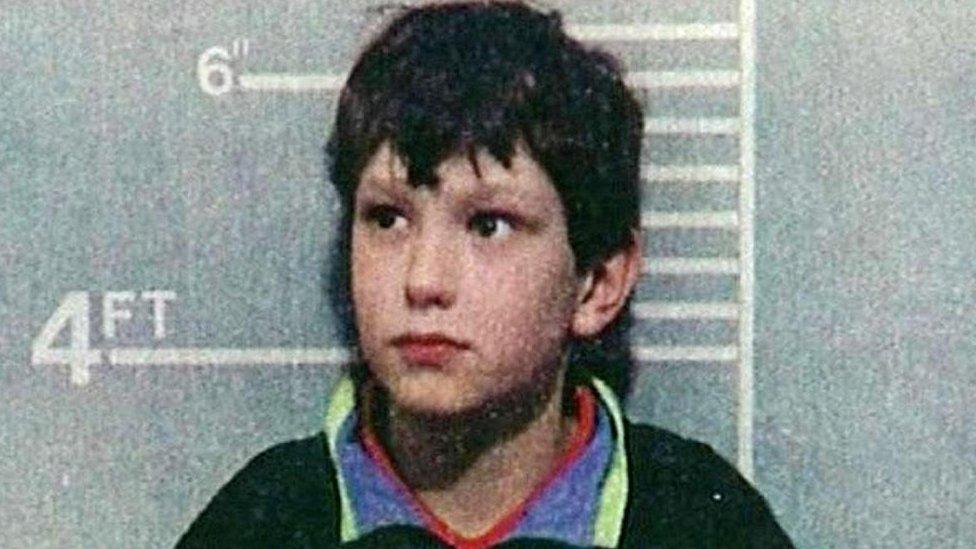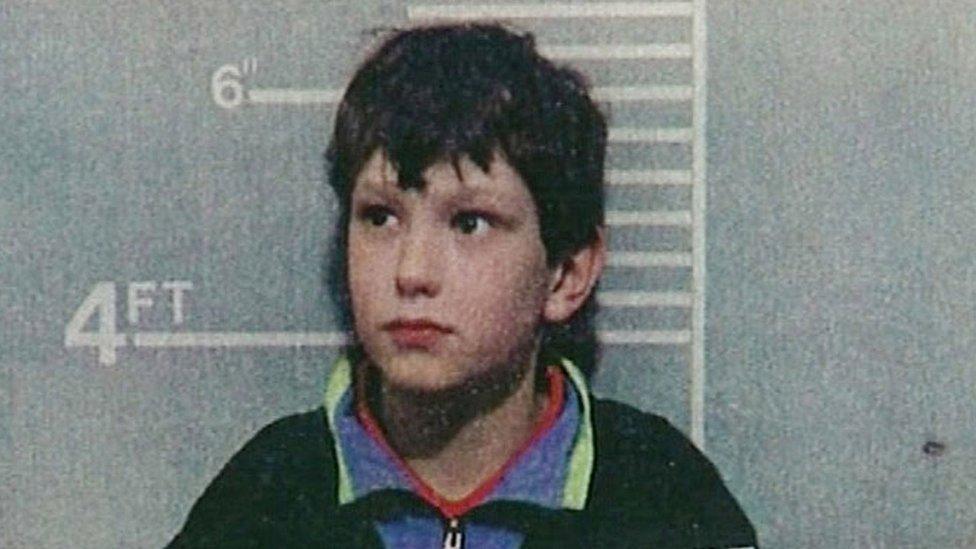James Bulger killer Jon Venables' parole bid fails
- Published

Jon Venables, now 41, has spent time in prison for indecent image offences in recent years
James Bulger killer Jon Venables has failed in a bid to be freed from prison after parole officers ruled he remains a danger to children.
Venables was 10 when he murdered the two-year-old with Robert Thompson in Bootle, Merseyside in 1993 and could re-offend, the Parole Board said.
Its report said his release at this point would not be safe for the public.
Venables was released on licence in 2001 but recalled after indecent images of children were found on his computer.
He was returned to prison in February 2010 and released again in August 2013 - but then called back in November 2017 for the same offence.
Parole judges last considered his case in September 2020.
According to a summary of the latest decision, Venables had "accepted that he had a long-term sexual interest in children/indecent images of children", despite taking part in a "considerable amount of work in prison to address this area of risk".
He has a history of taking drugs and secretly trying to use the internet in breach of licence conditions, it said.
The panel was "concerned by continuing issues of sexual preoccupation in this case", warning there are "future risks" of him viewing more child sexual abuse images and of him "progressing to offences where he might have contact with children".
"Both of these present a risk of causing serious harm to others," the three-page document added.
The Parole Board said it doubted Venables' ability to be open and honest with professionals, and concluded that there remained a need for him to "address outstanding levels of risk, and to develop his relationship with his probation officer."

James Bulger was two when he was abducted and killed in 1993
There is a long-standing legal order in place to protect the identities of both Venables and Thompson because of their young age when they committed the murder.
For this reason, the chairwoman of the Parole Board of England and Wales, Caroline Corby, chose not to hold his parole hearing in public, and James's family were not able to attend.
Venables and Thompson, who was also 10 at the time, abducted James from a shopping centre in February 1993.
Together they led him to a nearby railway line, tortured and killed him.
They were released on licence in 2001 after serving eight years for the murder and were both given new identities.
James' family praised the decision, and a spokeswoman for his mother, Denise Fergus, said this was a day she had been waiting "years" for.
"The prospect of him coming out was terrifying as we knew he'd harm again," she said.
'Barbaric murder'
His father Ralph Bulger, and uncle Jimmy Bulger, said they were "relieved", but criticised the Ministry of Justice and said government officials had been "hostile" ahead of the Parole Board hearing.
They raised concerns that a memorandum of the sexual element of James' murder was never admitted to the Parole Board panel.
They said: "The further offending by Jon Venables has had a traumatic impact on us. We are immensely concerned that the MoJ is incapable of protecting the public and that officials within it are clearly not fit to fulfil their obligations."
The MoJ said it had nothing further to add in response to the criticism.
Justice Secretary Alex Chalk said: "James Bulger's barbaric murder was a crime that shocked the nation and I welcome the Parole Board's decision to keep his killer behind bars.
"Public protection is our number one priority which is why I opposed Jon Venables' release and this government is reforming the parole system to introduce a stronger ministerial check on the release of the most dangerous offenders."
His previous parole review in 2020 determined he used sex and pornography "as a means of coping", felt a "lack of fulfilment in life" and had a "need for excitement", as it looked at his behaviour leading up to his more recent offences.
Venables will be eligible for another parole review in about two years' time.

Why not follow BBC North West on Facebook, external, X, external and Instagram, external? You can also send story ideas to northwest.newsonline@bbc.co.uk, external
Related topics
- Published25 October 2023

- Published20 September 2023

- Published29 September 2020

- Published4 March 2019
